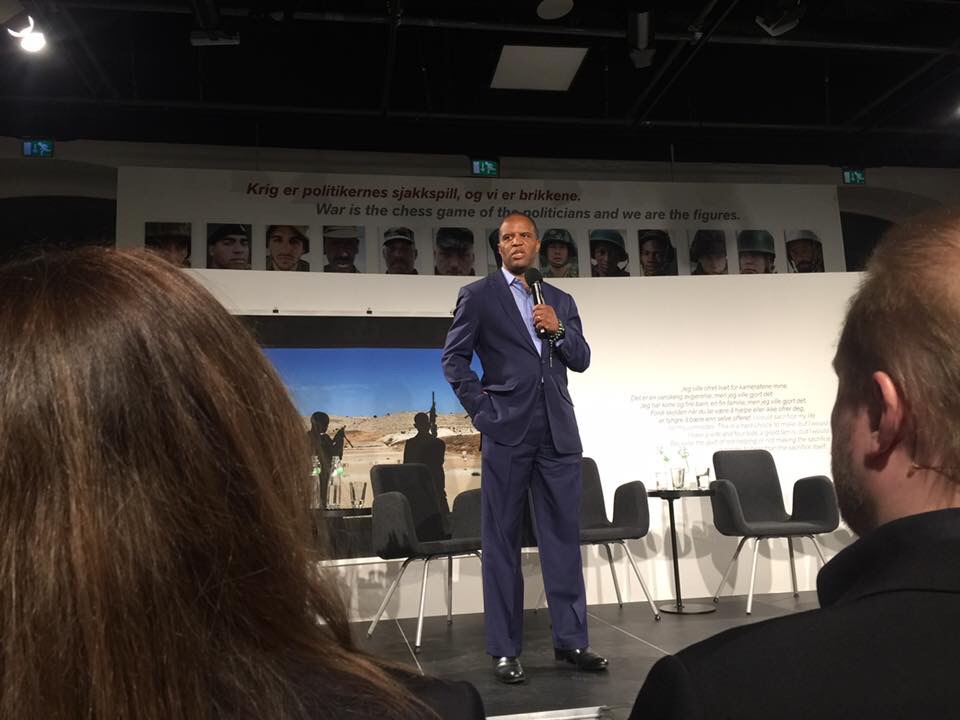I was honored to join a distinguished group of dignitaries and leaders from throughout Norway and around the world last week, for a special presentation at the Nobel Peace Center, home of the Nobel Peace Prize.
Dignitaries includes the Mayor of Oslo (a very nice person), a dozen Global Dignity Country Chairs from around the world, and of course the Crown Prince and Crown Princess of Norway, who served as our host in Norway last week. The topic was ‘extremism,’ and I used the opportunity to highlight some of the less prominent words of a former Nobel Peace Winner, Dr. Martin Luther King, Jr., who said in his Letter from a Birmingham Jail:
“But though I was initially disappointed at being categorized as an extremist, as I continued to think about the matter I gradually gained a measure of satisfaction from the label. Was not Jesus an extremist for love…Was not Amos an extremist for justice…Was not Martin Luther an extremist…So the question is not whether we will be extremists, but what kind of extremists we will be. Will we be extremists for hate or for love? Will we be extremists for the preservation of injustice or for the extension of justice?”
King further addressed the accusation that the Civil Rights Movement was “extreme,” first disputing the label but then accepting it. Compared to other movements at the time, King finds himself as a moderate. However, in his devotion to his cause, King refers to himself as an extremist. Jesus and other great reformers were extremists: “So the question is not whether we will be extremists, but what kind of extremists we will be. Will we be extremists for hate or for love?”[15] King’s discussion of extremism implicitly responded to numerous “moderate” objections to the ongoing movement, such as President Eisenhower’s claim that he could not meet with civil rights leaders because doing so would require him to meet with the Ku Klux Klan.[16]
King expressed general frustration with both white moderates and certain “opposing forces in the Negro community.”[17] He wrote that white moderates, including clergymen, posed a challenge comparable to that of white supremacists, in the sense that, “Shallow understanding from people of good will is more frustrating than absolute misunderstanding from people of ill will. Lukewarm acceptance is much more bewildering than outright rejection.”[18] King asserted that the white church needed to take a principled stand or risk being “dismissed as an irrelevant social club.”[19] Regarding the black community, King wrote that we need not follow “the ‘do-nothingism’ of the complacent nor the hatred and despair of the black nationalist.”[17]
The above three paragraphs were excerpts from Dr. King’s own words, in April, 1963, or a year before he received his Nobel Peace Prize. I provided my own context, in my own words, which you can find at the end of the Global Dignity video below. I provided closing remarks. I hope that you enjoy it. I was honored — to do it.
Let’s go…
John Hope Bryant, entrepreneur, founder of Operation HOPE, and co-founder, Global Dignity

